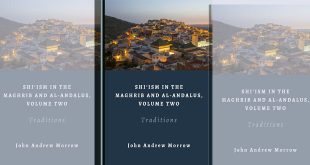The Islamic studies program allows students to combine relevant courses from a number of fields—history, history of art, philosophy, near eastern languages and cultures, international studies, and others—with work in Islamic languages and literatures.
Islam is the faith of approximately a billion people, and Islamic culture extends in time from the seventh century to the present and in space from Spain to the Philippines, from the Volga to the Zambezi.
The Islamic studies program allows students to combine relevant courses from a number of fields—history, history of art, philosophy, near eastern languages and cultures, international studies, and others—with work in Islamic languages and literatures. Students may, for example, examine the Mesopotamian, Hellenic and Persian past which serves as a background to the rise of Islamic civilization, or the Muslim societies that have emerged in Central Asia, South Asia, Africa and Europe over the 14 centuries of Islamic history.
Curriculum
Students who major in Islamic studies are required to complete a program in language, history, basic research, culture and allied courses. Students plan their major programs in consultation with their faculty advisors to meet their individual needs and to assure a coherent educational program.
Courses are chosen from a language with a very large proportion of Muslim speakers and a rich Islamic literary tradition (Arabic, Persian or Turkish). Core courses include the study of an Islamic language through the 1103 level (these do not apply to the major) and at least two courses beyond the 1103 level. Other courses include history, basic research and culture, and allied courses related to some special aspect of Islamic cultures and institutions.
Possible Careers
Islamic studies offers students a unique approach to all the major disciplines within the humanities. As a part of the arts and humanities and, hence, of the liberal arts, Islamic studies seeks to prepare students for further study in the humanities as well as prepare them for employment in state and local government, religious organizations, social agencies, teaching, business, and the arts. Graduates have also become college and university professors, lawyers, and business executives.
Students can explore career options by utilizing Career Connection as well as Arts and Sciences Career Services. Career Connection focuses on helping students establish a career direction, while Arts and Sciences Career Services assists students with finding internships—experiences that are essential to testing out the suitability of career fields they are considering.
Contact the Center
Justin Acome
Near Eastern Languages and Cultures
300 Hagerty Hall
1775 College Road
Columbus, OH 43210
Phone: 614-292-9255
Email: acome.1@osu.edu
 Ijtihad Network Being Wise and Faithful Muslim in the Contemporary World
Ijtihad Network Being Wise and Faithful Muslim in the Contemporary World
